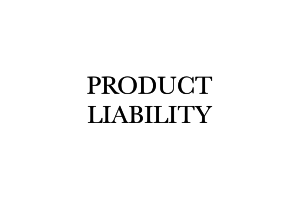AUTOCITY LIEGE s.a., a Belgian car dealer, has been working as an authorized dealer of KIA MOTORS BELGIUM s.a., a local subsidiary of the famous car brand, for nearly a decade. The relationship dated back to the summer of 2006 and was for an open-ended term.
In the spring of 2015, KIA warned Autocity that, following an inspection conducted by Kia with their dealers, it had emerged that Autocity had kept for themselves some €125,000 received from KIA as for bonuses on return of used (primes de reprise), and purchase of new vehicles (remises). This should have been credited to customers, instead. Some months later, since Autocity had failed to provide convincing explanations, KIA terminated the contract with Autocity. Effects of termination were postponed to the summer 2017 (two years later), though, “in order to mitigate the damages that KIA would suffer, and leave Autocity an opportunity to justify itself.” In the termination letter, however, KIA expressly mentioned the fact that they would be entitled to proceed to an immediate termination of the contract, given a contractual clause authorizing either party to terminate the contract with immediate effect, by simple written notice, for “serious and repeated failures to perform“[1].
A lawsuit ensued before the Tr. Commerce of Liège in which Autocity challenged the validity of KIA’s initiative and asked that KIA be ordered to pay an indemnity for failed notice, and an indemnity for the surplus value constituted by the clientele brought in, in addition to certain amounts Autocity claimed to be owed under the contract. For its part, KIA demanded that it was the court to declare the judicial termination of the contract, and Autocity be ordered to pay damages (by the way, following a second inspection, the amount of premiums and discounts unduly ‘withheld’ by Autocity had risen to approx. €280,000)[2]. The court rejected the claims of both parties, and deferred to the opinion of an expert to assess the amount of premiums and discounts[3]. Dissatisfied, both Autocity and KIA challenged that decision. On appeal, things went well for Autocity, which was awarded €250,000 as for goodwill indemnity[4].
At that point, KIA were evidently unhappy with the rejection of their claim for judicial termination of the contract due to Autocity’s fault. In fact, the court of appeals had confirmed what the first instance judge had already said, namely that such a termination could not be admitted, since it was KIA itself, in the summer of 2015, that did not want to take advantage of the possibility they had to terminate with immediate effect for justified reason. They preferred instead to resort to the mechanism of termination with the granting of two-year notice (in this scenario, it mattered little what motivation had moved KIA to terminate). Judicial termination was a third option, but it had not been adopted. According to the court, KIA was no longer in a position to count on it, in relation to the same factual circumstances on which the termination with notice had been based. That would have been an intolerable contradiction.
These findings have been recently overruled by the Belgian Court of Cassation[5]. Indeed, the supreme court has remarked that, on the one hand, a termination under the special Belgian legislation on distribution contracts (Art. X.36 CDE) does NOT require to be based on any justification; on the other hand, that a claim for (ordinary) judicial termination (Art. 1184 CC) is not barred by the fact that a notice for termination has previously taken place.
From the perspective of a foreign principal, to formalize a distribution agreement with a Belgian distributor is notably sensitive. In fact, Belgium is one of the few countries that imposes specific regulations on contract termination, providing non-derogable rules. As mentioned above, serious breach of contract by the distributor may justify a termination with immediate effect and without indemnity. However, it is a case which, if not exceptional, is at least not ‘ordinary’ (typical examples are non-payment of a certain importance, especially if repeated; violations of the non-competition obligation, …). Where such circumstances do not occur, a distributor must be given (Art. X.36 EDC) a reasonable notice (i.e. a notice of at least a couple of years, or an indemnity in lieu[6]) and also must be paid (Art. X.37 EDC) an appropriate ‘complementary’ indemnity (i.e. a compensation for the goodwill created – usually the net profit made by the distributor out of the contracted products/services over a time range of 6 to 24 months). These provisions apply to open-ended contracts. However, care must be taken even in case of fixed-term contract (i.e., with an expiration date). In fact, in order to prevent this from being considered converted into an open-term contract, an explicit declaration is required (Art. X.38 CDE) to be sent not earlier than 6, and not later than 3 months before the expiration date. Moreover, after two renewals a fixed-term contract is deemed to have been transformed into an open-end contract. All this, keeping in mind that a Belgian court cannot but apply said rules, even if the contract is governed by a different law (which does not provide for similar provisions) (Art. X.39)[7]. The solution is thus to avoid, as far as possible, that any disputes fall under the jurisdiction of the Belgian court.
Those who are interested in receiving (free) full copy of the annotated decision, please write to newsletter@lexmill.com.
Footnotes:
[1] The clause appears to be in line with Belgian law-which was the applicable law in our case-which states that exclusive sales concession contracts of indefinite duration can be terminated unilaterally in the event of serious breach (manquement grave) by either party (Art. X.36 CDE – Code de droit économique – which reproduces the old Art. 2 of Law 27/07/1961). This is the concept of ‘just cause’ also known in Italian law, i.e. a particularly serious reason that prevents the continuation, even temporarily, of the relationship.
[2] “Judicial termination” (rèsolution judiciaire) means that the termination of a relationship is determined by the court in light of all the useful elements of the case. The party requesting Judicial termination is obliged to continue with the performance of the contract until a decision is made. The basic rule is posited in Belgian law by Article 1184 CC (Code civil), in relation to any contracts providing mutual performances. A similar rule can also be found in Italian law (art. 1453 ff. c.c.). In fact. this solution is preferable – as opposed to an immediate termination for cause – in cases where the legal prerequisites for an immediate termination do not exist, or the proceeding party fears that they may not exist and therefore does not want to risk having to be liable later for damages resulting from a move that turned out to be reckless.
[3] Tribunal de Commerce Liège (BE), arrêt du 12 janvier 2019.
[4] Cour d’Appel de Liège (BE), arrêt du 17 septembre 2019 (n. 2018/RG/1250).
[5] Cour de Cassation de Belgique, arrêt du 7 janvier 2021 (C.20.0258.F).
[6] The length of the notice period must be calculated on a case-by-case basis. Indeed, the Belgian Supreme Court ruled in 2005 (arrêt du 10 février) that the notice must be such that the dealer can revert to having an income equal to what the contract secured for him. The replacement indemnity is usually assumed to be the average gross profit of the last three fiscal years, net of the expenditures that are no longer incurred into (c.d. bénéfice semi-brut).
[7] It should be noted, however, that the EU Court of Justice has established – with reference, indeed, to agency contracts – a principle that can be extended by analogy to sales concession contracts: a court of a Member State may disregard the foreign law chosen by the parties, in favor of local mandatory rules “only if the court before which the case has been brought finds, on the basis of a detailed assessment, that, in the course of that transposition, the legislature of the State of the forum held it to be crucial, in the legal order concerned, to grant the commercial agent protection going beyond that provided for by that directive, taking account in that regard of the nature and of the objective of such mandatory provisions” (Judgment. ECJ 17/10/2013, in C-184/12, Unamar).













